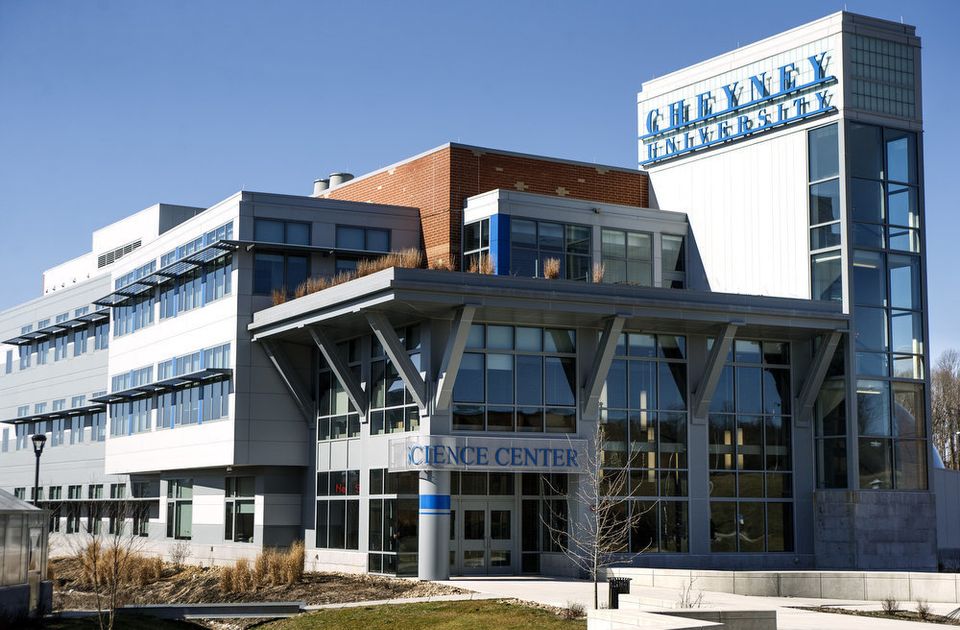By Chanel Hill
Cheyney University President Aaron Walton said his vision for the historically Black institution, or HBCU, is to be the premier educational model for academic excellence, character development and social responsibility.
This comes days after it was announced the university, which is the oldest HBCU in the country, could keep its accreditation by the Middle States Commission on Higher Education. The school was founded in 1837 and is located in Chester and Delaware counties.
“Cheyney has a model that other HBCUs and PWIs [predominantly white institutions] can emulate,” Walton said in an interview with The Tribune. “There are so many things that we’re doing at Cheyney that probably are not being done at many other institutions.
“We want to share what we’re doing in hopes that other HBCUs can adopt some of the things that we’re doing to better their own institutions,” he said. “That’s why we’re here. Whenever you’re first, you lead.
“We want people to know that Cheyney is going to take its rightful position as a leader in cutting edge technology and opportunities for students who matriculate to Cheyney University,” he added.
Walton became the president of Cheyney in 2017. He said that since his arrival a lot has changed at the university.
The Pennsylvania State System of Higher Education Board of Governors appointed a task force that was charged with developing a new institutional model for the university.
The model led to Cheyney’s engaging in private-public partnerships with organizations that could provide paid internships for students.
The Wistar Institute, ASI Chemicals, Atlanticare, Navrogen, Propel and Sure-BioChem Laboratories are some of Cheyney’s strategic partners.
“We currently have three organizations that reside in some of our underutilized space,” Walton said. “We have a number of other companies that will be occupying total buildings over the next year or two.
“Our students are getting tremendous opportunities to intern with these organizations,” he added. “They are getting jobs when they leave the university in fields that they perhaps would not have had an opportunity to engage in in the past.”
In May, more than 130 graduates were awarded degrees during the university’s 169th commencement ceremony.
The Class of 2024 was the university’s largest graduating class in five years. The university has also increased enrollment by an average of 10% per year.
Walton said this year’s numbers may show a slight decline due to the university being placed on probation in November by the commission.
The university was removed from probation by the accreditation agency on June 27.
“It might not be the only factor, but it had a negative impact on our ability to recruit and perhaps retain students,” Walton said. “We’re probably down 8% from where we were last year at this same time.
“Hopefully, this decision will allow us to make up some other grounds before students come to the university in the last part of August,” he added.
Despite the setback, Walton said he appreciates the opportunity to continue to serve the university and is grateful for the outpouring of support.
“We owe a great debt of gratitude to a lot of individuals,” Walton said. “A lot of people were supportive of the direction Cheyney was going in and stood behind us in our objection to the way we felt that we were being treated.
“I’m very thankful that those organizations and those advocacy groups saw what we were trying to do,” he said.
New projects
Cheyney is in the midst of replacing its old gymnasium, which was built over 60 years ago.
The university received a capital appropriation of $48 million to replace the outdated gymnasium. The project is part of the state system’s capital process.
The complex will consist of two newly built indoor facilities. One will feature 10 basketball courts and a competitive show hardwood court and the other will house a full-size artificial turf playing field.
The new space will also include new lockers, concessions facilities and an outdoor grass football field surrounded by an eight-lane track.
“We will have other amenities in the building that students can take advantage of and activities that will support the athletic program at the university,” Walton said.
“Looking toward the future, the building will have specifications for Division II and PSAC (Pennsylvania State Athletic Conference),” he said. “Cheyney used to be a part of those organizations.
“We’re hoping at some point, Cheyney will be back in a position where we will be back in those conferences,” he added. “In addition to replacing the gymnasium, we are also renovating a number of other structures here on campus that have been in disrepair for a period of time.”
Walton said he wants students to know that Cheyney offers endless opportunities.
“We want our students to know what possibilities are out there for them,” he said. “Anyone who comes to Cheyney will have a unique experience with a very hands-on approach.”

